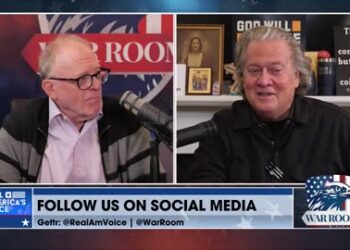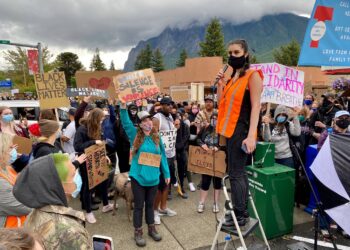The U.S. Treasury Department intensified sanctions on Iranian oil smuggling networks in Iraq, targeting schemes that disguise Iranian oil as Iraqi to fund Tehran’s destabilizing activities. Steve Bannon, in a Tuesday WarRoom discussion with Jack Posobiec, argues this move should extend to the Chinese Communist Party (CCP), which he claims buys 80% of Iran’s sanctioned oil, fueling both Iran’s mullahs and China’s energy needs.
By targeting Iran’s oil revenue stream, Treasury will further degrade the regime’s ability to carry out attacks against the United States and its allies. We remain committed to an oil supply free from Iran and will continue our efforts to disrupt the ongoing attempts by Tehran to… pic.twitter.com/Es0V7EpL3x
— Treasury Secretary Scott Bessent (@SecScottBessent) September 2, 2025
Cutting this cash flow could collapse Iran’s regime, empowering the Persian people to drive change without U.S. military entanglement, aligning with President Trump’s America First policy to counter global threats.
Details and Importance:
Bannon highlights the breaking news from September 2, 2025, where the Treasury’s Office of Foreign Assets Control (OFAC) sanctioned a network led by Iraqi-Kittitian businessman Waleed al-Samarra’i for smuggling Iranian oil, blended with Iraqi oil to evade detection, generating hundreds of millions for Iran. He argues this is a critical step, but misses the bigger target: the CCP. Bannon asserts that China’s purchase of 80% of Iran’s oil—despite U.S. sanctions, doubled due to the Ukraine war—props up Tehran’s regime, which he labels the world’s leading terror sponsor. This cash flow, he contends, funds Iran’s nuclear ambitions and proxies like Hamas, the Houthis, and Hezbollah, destabilizing the Middle East and beyond.
According to Bannon, the importance lies in choking this financial pipeline. By severing China’s access to Iranian oil, the U.S. could cripple Iran’s economy, forcing the mullahs to face internal pressure from the Persian people. He references the U.S.’s historical entanglement with the Shah, suggesting America should avoid direct intervention and let Iran’s citizens decide their future. This aligns with Trump’s "maximum pressure” campaign, which includes obliterating Iran’s nuclear program without deploying U.S. troops. Bannon warns that Israel, a U.S. protectorate reliant on American missile defense during recent conflicts, might drag the U.S. into a broader war to distract from its Gaza mishandling—a risk Trump’s policies aim to avoid.
Bannon’s broader point ties to global geopolitics: the CCP’s role as Iran’s top buyer undermines U.S. sanctions and strengthens an anti-American axis. He views this as part of the CCP’s push, alongside Russia’s KGB, for a new world order, exploiting U.S. domestic weaknesses such as cultural decay and looming budget crises. By targeting China’s oil imports, the U.S. could disrupt this axis, protect national interests, and avoid foreign entanglements. Bannon’s call to "cut off the cash flow” is both a tactical move against Iran and a strategic jab at the CCP, urging Trump to leverage sanctions to restore American dominance while sidestepping Middle Eastern quagmires.
This breaking news underscores the need for aggressive enforcement to counter global adversaries. Bannon’s America First lens demands prioritizing U.S. sovereignty, redirecting focus from foreign wars to domestic strength, and using economic tools to dismantle hostile regimes’ lifelines, starting with Tehran’s oil flowing through Beijing.





